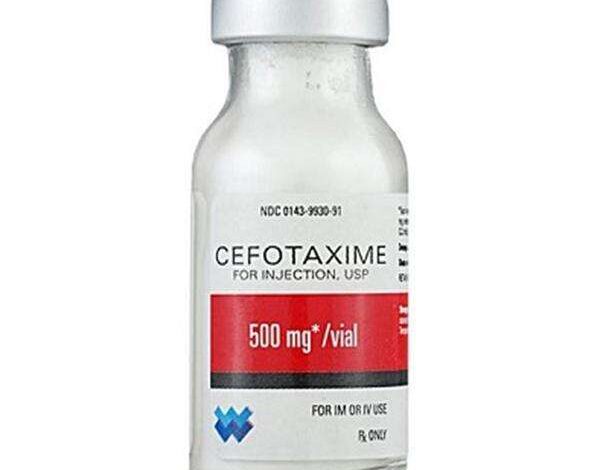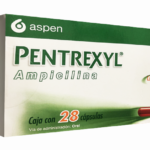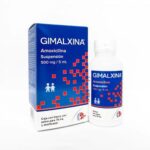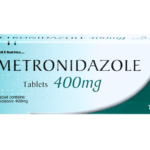What is Valoran: Uses, Side Effects, Interactions

Valoran is a brand of cefotaxime, an antibiotic used to treat a number of bacterial infections. Valoran injection is used to treat certain infections caused by bacteria including pneumonia and other lower respiratory tract (lung) infections; gonorrhea (a sexually transmitted disease); meningitis (infection of the membranes that surround the brain and spinal cord) and other brain and spinal cord infections; and abdominal (stomach area), female reproductive organs, skin, blood, bone, joint, and urinary tract infections.
Valoran injection may also be used before surgery, and during and after a cesarean section, in order to prevent the patient from getting an infection. Valoran injection is in a class of medications called cephalosporin antibiotics. It works by killing bacteria. Antibiotics such as Valoran injection will not work for colds, flu, or other viral infections. Using antibiotics when they are not needed increases your risk of getting an infection later that resists antibiotic treatment.
What special precautions should I follow?
Before taking Valoran injection,
• Tell your doctor and pharmacist if you are allergic to Valoran, other cephalosporin antibiotics such as cefaclor, cefadroxil, cefazolin (Ancef, Kefzol), cefdinir, cefditoren (Spectracef), cefepime (Maxipime), cefixime (Suprax), cefotetan, cefoxitin (Mefoxin), cefpodoxime, cefprozil, ceftaroline (Teflaro), ceftazidime (Fortaz, Tazicef, in Avycaz), ceftibuten (Cedax), ceftriaxone (Rocephin), cefuroxime (Zinacef), and cephalexin (Keflex); penicillin antibiotics; or any other medications. Also tell your doctor if you are allergic to any of the ingredients in Valoran injection. Ask your pharmacist for a list of the ingredients.
• Tell your doctor and pharmacist what prescription and nonprescription medications, vitamins, nutritional supplements, and herbal products you are taking or plan to take. Be sure to mention any of the following: amikacin, furosemide (Lasix), gentamicin, kanamycin, neomycin (Neo-Fradin), nonsteroidal anti-inflammatory medications (NSAIDs) such as ibuprofen (Advil, Motrin) and naproxen (Aleve), probenecid (Probalan), streptomycin, and tobramycin. Your doctor may need to change the doses of your medications or monitor you carefully for side effects.
• Tell your doctor if you have or have ever had any kind of allergies, recent surgery or trauma, diabetes, cancer, heart failure, gastrointestinal disease (GI; affecting the stomach or intestines), especially colitis (condition that causes swelling in the lining of the colon [large intestine], or kidney disease.
• Tell your doctor if you are pregnant, plan to become pregnant, or are breastfeeding. If you become pregnant while taking Valoran injection, call your doctor.
How should this medicine be used?
Valoran injection comes as a powder to be mixed with liquid to be injected intravenously (into a vein) or intramuscularly (into a muscle). Valoran injection is also available as a premixed product to be injected intravenously. How often you receive Valoran injection and the length of your treatment depends on the type of infection you have and how your body responds to the medication.
You may receive Valoran injection in a hospital or you may administer the medication at home. If you will be receiving Valoran injection at home, your healthcare provider will show you how to use the medication. Be sure that you understand these directions, and ask your healthcare provider if you have any questions.
You should begin to feel better during the first few days of treatment with Valoran injection. If your symptoms do not improve or get worse, call your doctor.
Use Valoran injection until you finish the prescription, even if you feel better.If you stop using Valoran injection too soon or skip doses, your infection may not be completely treated and the bacteria may become resistant to antibiotics.
What are the possible side effects of Valoran?
Valoran may cause serious side effects including:
• easy bruising or bleeding,
• unusual tiredness,
• uncontrollable movements,
• mood changes,
• confusion,
• seizures,
• changes in the amount of urine,
• nausea,
• vomiting,
• loss of appetite,
• stomach pain,
• yellowing of the eyes or skin,
• dark urine, and
• fast, slow or irregular heart beat
Get medical help right away, if you have any of the symptoms listed above.
The most common side effects of Valoran include:
• injection site reactions (pain, irritation, a hard lump or inflammation),
• rash,
• itching,
• hives,
• fever,
• nausea,
• vomiting,
• stomach pain,
• headache,
• diarrhea,
• vaginal itching or discharge,
• colitis,
• irregular heartbeat,
• low white blood cell levels,
• low blood platelet levels, and
• yeast infection
Tell the doctor if you have any side effect that bothers you or that does not go away.
These are not all the possible side effects of Valoran. For more information, ask your doctor or pharmacist.
Call your doctor for medical advice about side effects. You may report side effects to FDA at 1-800-FDA-1088.
To reduce the development of drug-resistant bacteria and maintain the effectiveness of Valoran (Valoran for injection) for Injection USP and Dextrose Injection and other antibacterial drugs, Valoran (Valoran for injection) for Injection USP and Dextrose Injection should be used only to treat or prevent infections that are proven or strongly suspected to be caused by bacteria.





